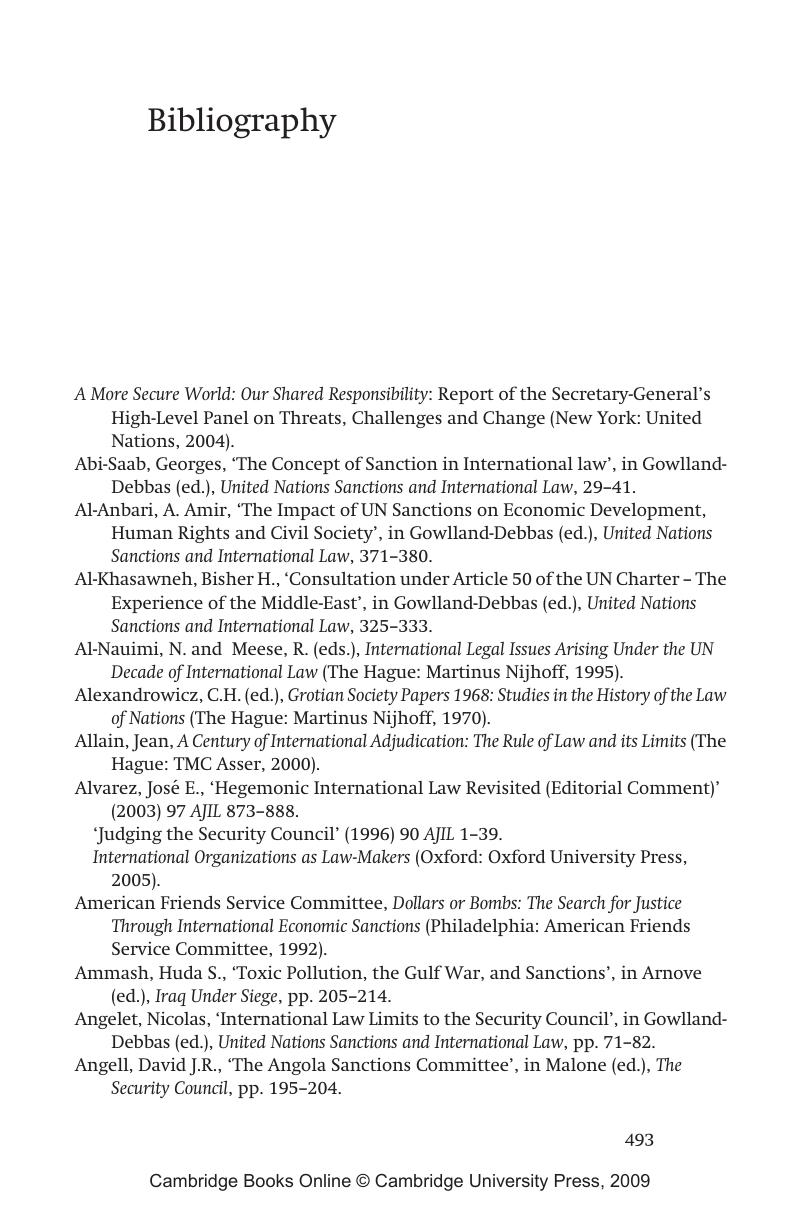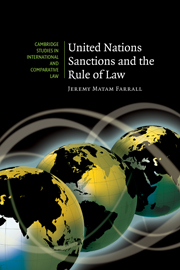Book contents
- Frontmatter
- Contents
- Extended Table of Contents
- Preface
- Abbreviations
- Part I Setting the scene
- Part II The evolution of the UN sanctions framework
- Part III UN sanctions in practice
- Part IV Strengthening the rule of law
- Appendix 1 Summary of policy recommendations
- Appendix 2 Summaries of UN sanctions regimes
- Appendix 3 Tables
- Bibliography
- Index
- Cambridge Studies in International and Comparative Law
- References
Bibliography
Published online by Cambridge University Press: 26 June 2009
- Frontmatter
- Contents
- Extended Table of Contents
- Preface
- Abbreviations
- Part I Setting the scene
- Part II The evolution of the UN sanctions framework
- Part III UN sanctions in practice
- Part IV Strengthening the rule of law
- Appendix 1 Summary of policy recommendations
- Appendix 2 Summaries of UN sanctions regimes
- Appendix 3 Tables
- Bibliography
- Index
- Cambridge Studies in International and Comparative Law
- References
Summary

- Type
- Chapter
- Information
- United Nations Sanctions and the Rule of Law , pp. 493 - 523Publisher: Cambridge University PressPrint publication year: 2007



